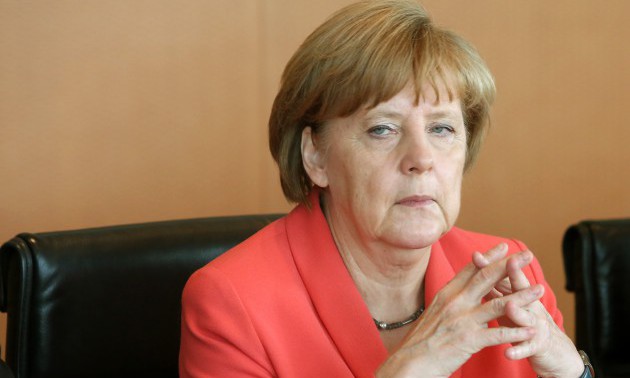A Brief History On The Greek Debt Crisis
So how did Greece get caught up in this mess in the first place? It’s been going on for a while—five years, in fact, from when the country first realized that it had been grossly underestimating its deficit as a result of the Wall Street crash from 2008. In 2010, most international banks and foreign investors sold their Greek bonds, so they were no longer affected by what happened in Greece. Then, the troika, a.k.a. the International Monetary Fund, the European Central Bank and the European Commission, saved Greece with a 240 billion euro bailout. It still wasn’t enough to help the country. The measure helped with international loans, but not with the national economy. As a result, Greece’s economy dropped by a quarter and unemployment went up to a whopping 26 percent (with youth unemployment at 50 percent).
As you can imagine, Greece became a huge burden to the rest of the Eurozone, and many argued that Greece should be the first country removed to save other countries from being sucked into its financial problems. Opponents said that removing Greece would shake up the region’s stability and dispel Europe’s united front; some economists argue that keeping a united front could ultimately make the Eurozone stronger. Plus, Greece exports 65 percent of its goods, so it can’t afford to be alienated by the world economy.
Supporters, on the other hand, say that removing Greece from the Eurozone is only fair because it didn’t clean up its act as it was required to and no one else should be further responsible for cleaning up its problems that have become so out of hand. Other countries would be better off without it and it is possible for Greece to rebuild its financial independence by using its original currency, the drachma, if it is finally left alone. The smoking gun is that Greece only makes up 2 percent of the Eurozone economy, so Greece leaving the coalition might not be as much of an issue as they previously thought.
What Happens Next
No one knows for sure what is going to happen. The latest bailout may or may not be passed. If the country misses its deadline of paying 3.5 billion euros to the ECB by July 20, it could essentially force Greece out of the Eurozone and cause its banks to collapse. The European Central Bank could provide a stimulus by printing more money and lowering interest rates, but that could create inflation in other countries that are already thriving. One thing we do know is that Angela Merkel, the chancellor of Germany and de facto leader of the European Union, has made it clear that she won’t be letting Greece get off easy by writing off the debt under any circumstances.

Source: Adam Berry / Getty
In an interview with CNN, Former German Defense Minister, Karl-Theodor zu Guttenberg, said that even if Greece missed its deadline on creating a deal this weekend, it’s unlikely that the deadline won’t be extended again based on how many deadlines Greece has been given in the past.
“I would like to let them go and have a controlled Grexit, but I don’t think that will happen. I think that the chancellor will do everything to keep them in the shaking bowl and to keep the impression that the members of the Eurozone are united…No one wants to be accused of obliterating a wonderful European idea.”
“No one wants to be accused of obliterating a wonderful European idea.”
Malveaux, however, has the impression that Merkel feels pressured to appease her constituency that is more frustrated and less sympathetic to Greece’s problems as they are with their own. Malveaux thinks that austerity measures are a bad idea because stifling spending could further stifle the economy at large, and she maintains that debt relief is the best solution. If Greece were pushed into being more financially independent, she explained:
“Internally, it means they have more control of their finances. However, people have contracts with euros drawn as the currency. So what do you do about that? Work permits, investment contracts are written in terms of the euro. And nobody knows how that’s going to work out.”
It’s a bleak future for Greece, no matter how much sugar and candy Prime Minister Tsipras wants to sprinkle on top of it. Should the nation go bankrupt, things would look a lot like it did here in America during the Great Depression. Banks would close, leaving residents without money or control over their pensions. Already, grocery shelves are empty from people stocking up on food and gas stations are packed from people trying to get fuel. Medicines could soon run out. The government may even be looking at an uprising.
Has The US Gotten Involved?
The US hasn’t intervened much, as President Barack Obama says that this is an issue European officials should resolve among themselves. But the White House has stated its desire for Greece to remain in the Eurozone. Even if Obama did want to get involved, it would be awfully hard to convince legislators to spend money on Greece’s debt since conservatives are determined to cut national spending.
Updates on Greece seem to be coming by the hour, so we’ll let you know if and when anything else major happens next here on HelloBeautiful.com.
RELATED LINKS
Greece Votes ‘No’ On Bailout Referendum, Loses Finance Minister Amid Economic Conflict
Puerto Rico, Greece Economies Crash And Burn
Greece Lags On Building New Plan For Debt, May Be Pushed Into ‘Grexit’





















